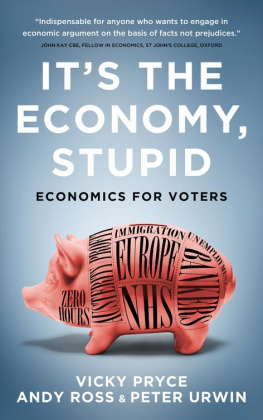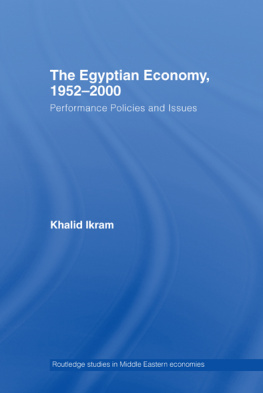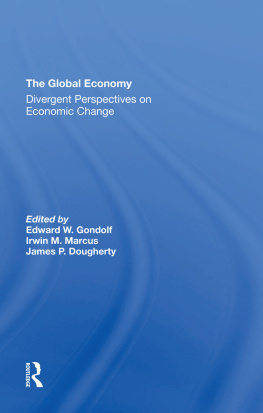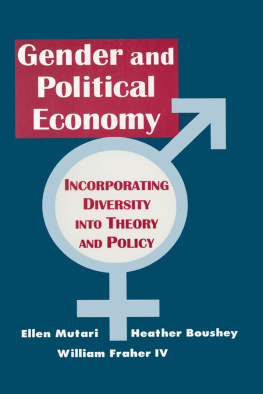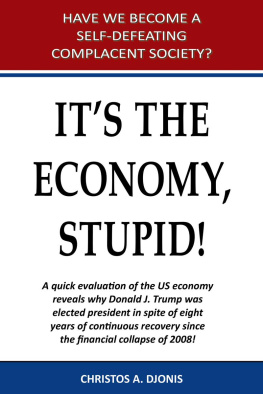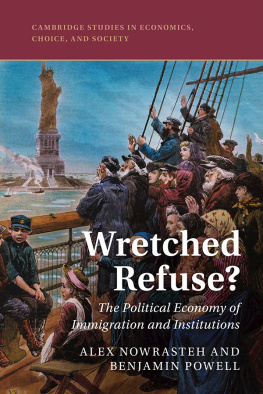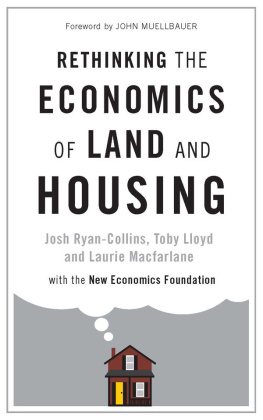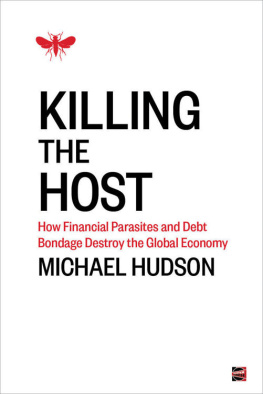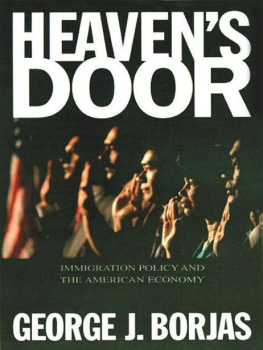T HIS BOOK LOOKS at the economic issues that will decide the general election of May 2015. Written by three economists with differing political perspectives, it belies the old joke that three economists will have six opinions. Sometimes, but certainly not always, the most interesting bits of economics are those where economists do disagree. We could simply give an overview of these various positions and the evidence produced by the variety of economists, but a balanced exposition can be as dull as an academic literature review that is, very dull indeed! So instead, this book gives rein for each author to go beyond the dry, non-committal formulisations of academic rigour and to express her or his personal judgements and, on a few occasions, for another author to take issue where they feel they just cant hold their tongue any more!
Each chapter brings together analysis and evidence to inform policy prescriptions. Where there is serious disagreement we do resort on occasion to
The electorate does vote emotionally, of course, but only up to a point. Pollsters worry about the voters perceptions of politicians who looks best when they are eating a bacon sandwich, should they be eating a bacon sandwich at all, do they dress well, do they know how to relax, what do their other halves (usually wives) look like? The newspapers then refer to leaders being unelectable because of those perceptions. Well, in reality and for the most part, voters are not stupid. What matters to them is the economy and jobs. That much is clear. But the information theyre given to base their decisions on is often biased, wrong, wilfully distorting the truth or even a downright lie. Getting to the bottom of the issues for the voter is what this book is all about.
I TS THE ECONOMY , stupid. James Carville, President Bill Clintons successful election campaign strategist, coined his famous maxim to leave no doubt about what matters most to the electorate. He knew that even those voter concerns that are runners-up to the clear winner, the economy, are mostly also about economics, as opinion polls in the UK consistently confirm. Politicians are acutely aware that democratic outcomes are largely determined by economics. Economics is covered daily, nightly and 24/7 on news channels. Indeed, the media typically place far too much emphasis on fluctuations in economic statistics, often billing the inevitable peaks and troughs as breaking news. Economic statistics are bound to fluctuate, but few doubt the longer-term importance of economics for our prosperity and social cohesion. Among those featured in Prospects 2014 list of fifty top world thinkers, seventeen were economists the next highest category being philosophers, with thirteen entries. Economists are sought for business decisions, for policy advice, or simply to explain to non-economists what is going on in the world.
Some media commentators had grown a little complacent on the importance of economics during the fifteen years or so of continuous growth, now known as the Great Moderation, that followed the UKs dramatic exit from the European Exchange Rate Mechanism in 1992. During this Great Moderation, also known as the NICE period (for non-inflationary continuous expansion), economists who ought to have known better boasted of having cracked how to run an economy. Perhaps it was a euphemism, but whosoever might have been sleeping on the job was rudely awoken by the crisis that began in 2007, which by 2011 had seen the UK lose a bigger percentage of GDP and world trade than any other major economy. What is GDP and why do we care?
We will use the term GDP a lot in this book, so best to explain it here up front. GDP stands for gross domestic product: this is a measure of the value of all goods and services produced within the boundaries of the UK within a year. If we add the income we earn from our overseas assets we get gross national income. Its gross because we havent deducted the depreciation of our capital, i.e. machines and infrastructure; if we do, we get net national income or just plain national income, but the depreciation adjustment is notoriously arbitrary and inaccurate. GDP tells us most about changes in the level of output, i.e. product, in a country and so is the most widely used measure. You wont be missing much in this book if you simply think of GDP as national income. GDP is useful for tracking the general direction of travel of the output of an economy, and is usually correlated with other important things such as the level of employment and overall tax receipts, but be wary of it as a measure of welfare (see Chapter 10). For example, its measurement has recently been extended to include prostitution and drug trafficking, and these dubious contributions will now be deemed to have boosted GDP by between 7 billion and 11 billion, whereas the wholly praiseworthy contribution of somewhere between 1.7 and 2.1 billion hours of extra help each year provided by informal volunteers in the UK remains excluded!
Good economic news generally boosts the popularity of the incumbent party in government. If bad economic performance becomes associated with a particular political party, it can blight its election chances for a long time. This is true even when the rival parties had near identical economic policies, as did the Conservatives and Labour during the run-up to the financial crisis that caused the recent Great Recession falling output followed by a flat-lining economy. In fact, economic policy often works with time lags, so measures taken by one government may well not have an effect until after the next one is in power, but the public tends to associate the party in power only with the good or bad news that is in the headlines during their term of office. Politics is a post hoc ergo propter hoc business. A grasp of economics helps you sort out who, if anyone, is responsible for what, or at least to make a more informed judgement.
The current Great Recession is an example of an economic event that has its origins decades earlier. After a long post-war regime of close bank regulation, reflecting the bank failures of the Great Depression, the UK financial sector was liberated by Mrs Thatcher in the 1980s by what was called the Big Bang. The Big Bang helped to release banks from their role as strict disciplinarians imposing prudence on themselves and their clients, and increasingly turned them into hard-sell purveyors of credit. This successfully preserved and bolstered Londons position as a world-leading financial centre, making the City of London the powerhouse for UK economic growth and providing welcome tax revenues for the Treasurys coffers, but it, and similar deregulation in the US, started the long chain of deregulation that led to near financial meltdown in 2007. The hugely respected Financial Times senior journalist Martin Wolf observed:
The economic, financial, intellectual and political elites mostly misunderstood the consequences of headlong financial liberalisation. Lulled by fantasies of self-stabilising financial markets, they not only permitted but encouraged a huge and, for the financial sector, profitable bet on the expansion of debt. The policy-making elite failed to appreciate the incentives at work and, above all, the risks of a systemic breakdown. When it came, the fruits of that breakdown were disastrous on several dimensions: economies collapsed; unemployment jumped; and public debt exploded.

